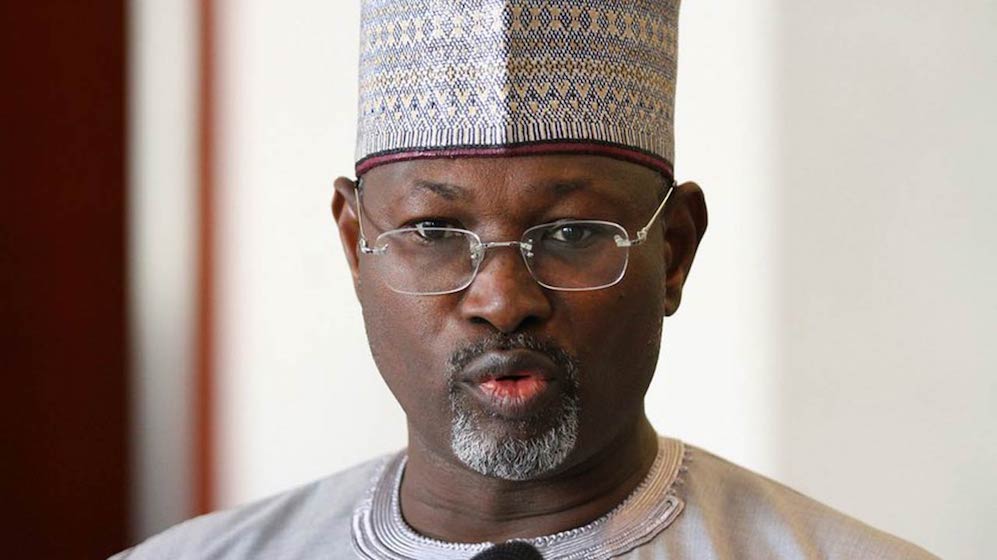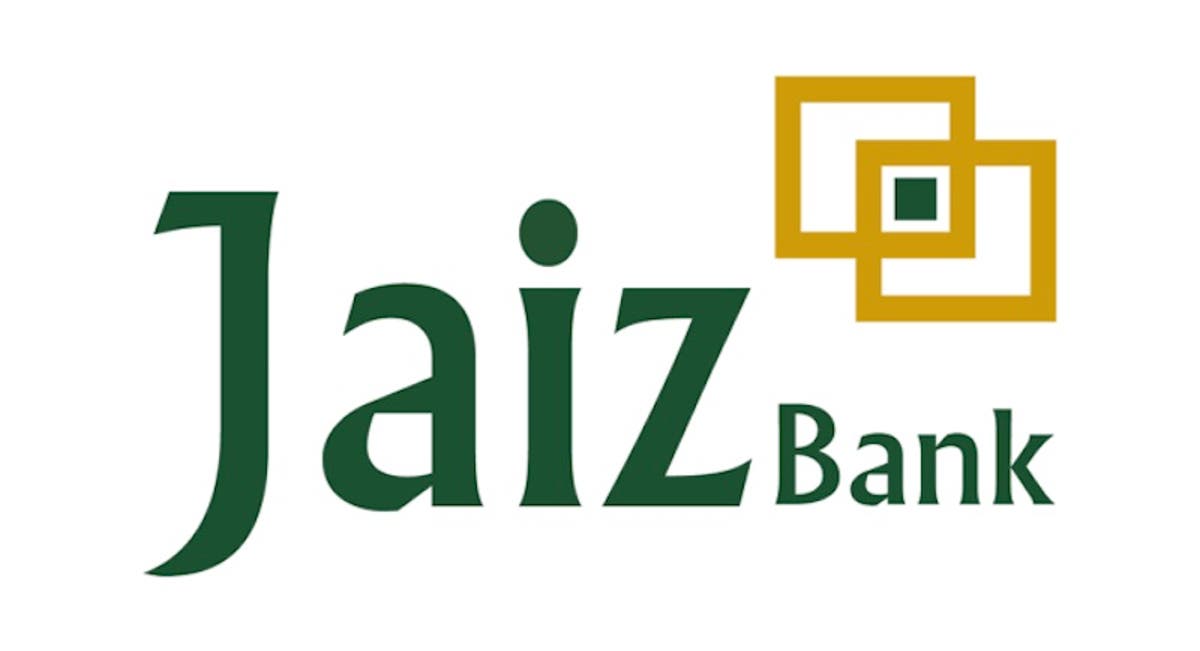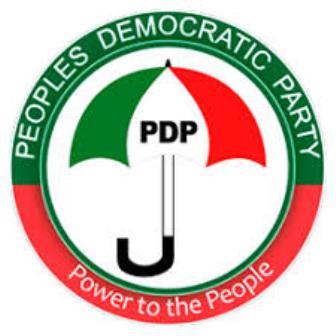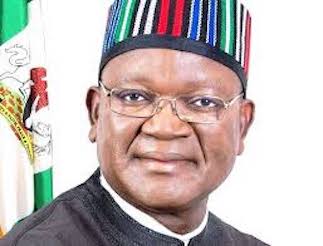COVER
On Constitutionalism: Towards Restructuring of Nigeria

By Attahiru Jega
There is currently an upsurge of passionate demands for “restructuring”, “true federalism” and “actualization of the sovereign state of Biafra”.
These demands are intricately intertwined and interconnected, and so vociferous that they are overheating the polity.
Sooner than later, these matters have to be addressed squarely but dispassionately.
The challenge is on how to address the issue of restructuring the Nigerian federal system without upsetting the apple-chart; that is, how to add value to the structure and systemic efficacy of the federal arrangement, without unleashing instability occasioned by the mobilization of ethnic, regional and religious sentiments and identities.Federalism is supposed to be “a model of political accommodation and power sharing, as well as a cure for micro-nationalism”.
The Nigerian experience has shown that our federal arrangement has not ensured a stable political accommodation and it has not ensured equitable power and resources sharing.
And, instead of curing micro-nationalism, it has fanned the embers of its conflagration.
Some things are clear.
The demands for secession cannot be wished away, and Nigeria’s unity and continued stay as one indivisible country should not be taken for granted. Statements like: “Nigeria’s unity is non-negotiable” or “Nigeria’s continued stay as one country is not negotiable” are factually incorrect, wishful thinking and politically abhorrent to those making the demands; these should therefore be avoided, indeed stopped.
On the other hand, Nigeria has come such a long way since 1914 that it would be easier to renegotiate the strengthening of the federation through devolution of power, resources and responsibilities, than to go the route of “separation” and secession.
Secession and separation from the federal republic of Nigeria has far greater costs and consequences for all concerned (those seeking to separate and those from whom are being separated) than remaining under a restructured federal system. Thus, it is in the enlightened self-interest of Nigeria and all Nigerians to sheath the swords of secession, and wear the garb of political accommodation and appropriate and sincere power and resources sharing.
In any case, there is no perfect federal arrangement anywhere in the world. There is nothing in essence, called “true federalism”. Federalism is a lived experience, continuously changing and seeking for improvement.
No doubt, Nigeria’s need for a “reformed, revitalized, decentralized and democratized federal system” is long over due. We should therefore begin to soberly interrogate some pertinent questions. For example, what should “restructuring” of the Nigerian federation entail?
How can this “restructuring” best be brought about, and through which mechanisms and processes?
Is there anything called “true federalism”? If so what is it?
How should revenues to the federation be collected and shared?
Who should collect them and how? Why Restructuring is Necessary
Three reasons can be adduced as to why some form of restructuring needs to be undertaken, as soon as is possible, in order to improve upon the current nature and operations of the Nigerian federal system; so as to improve the structure and systemic efficacy of the federation.
The 1999 Constitution, which was hurriedly put together and enacted by the General Abdulsalam Abubakar military regime, was not a product of appropriate inclusiveness and consultation. As a result, it has many inadequacies and flaws, from which our brand of federal arrangement suffers. Although some amendments have been effected to the constitution, the key issues affecting the federal structure have not been touched; but they cannot be ignored indefinitely.
A long period of military rule has resulted in the concentration of power and resources in the central and federal government to the disadvantage of the states, which are the federating units. This has in turn made the contest for political power to occupy federal organs very intense, as capturing federal government is perceived as ensuring control of tremendous power, influence and resources.
In an ethno-religiously diverse country, centralization and concentration of power and resources at the center generates conflict-ridden competition for the control of power at the center.
Only a judicious and equitable de-concentration and reallocation of power and resources from the center to the other federating units can de-escalate tension and smoothen hierarchical and horizontal relations in the federation. In reality, the 1999 Constitution has concentrated too much power and resources in the hands of the federal government, as a comparison of the exclusive and residual lists clearly shows; in this regard the uniqueness or exceptional character of the Nigerian federal arrangement is glaring. Powers, which are traditionally the preserve of the federating units (states, regions, provinces) are in Nigeria handed over either exclusively to the federal government, or are shared concurrently by the federal government and the states.
A dispassionate review of the 1999 Constitution would help to resolve many if not all the thorny outstanding issues.
Severe inequities were introduced and entrenched over time, especially on account of the prebendal politics under civil rule, and the divide and rule tactics under military rule, especially the mobilization of ethnicity, religion and other primordial interests by those who hold andp exercise power at the federal level.
The federal character (equalizing or equal opportunity) principle was introduced to address inequities associated with employment into federal establishments. In practice, many challenges have remained with the implementation of the federal character principle.
Recommendations
The following recommendations covering the structure, power sharing and resources and revenue allocation are offered for further reflection.
Nigeria should revert to the two-tier system: Federal and States (Local Government Areas (LGAs) as subsumed under the states).
It would be unrealistic, if not impossible to revert to a regional structure similar to what was in Nigeria’s past history. The pressures that led to the creation of states would not tolerate collapsing or regrouping those states to regions.
Nigeria is probably the only federal system with constitutionally recognized three tiers: Federal, State and Local Government Areas. This aberration was created under military rule. We should revert to a two tier federal system, with LGAs subsumed under states or regions.
Nigeria should have a short federal exclusive list, consisting of Foreign Affairs, National defense and security, Commerce and Currency. We should have a short concurrent list, consisting of Policing, taxation and tertiary education/health. Whatever isn’t listed belongs to the residual powers of the states, on which federal government would have only broad regulatory and incentivizing roles.
Specifically, certain powers and responsibilities, which in most stable federations are invested in the federal government, should continue to be retained by the Nigerian federal government.
These are in respect of national security, defense, armed forces, foreign affairs, currency and monetary policies and commerce (banking, inter-state economic relations, etc.).
All others, except a few like policing and tertiary education/health, which can be on the concurrent list, can be consigned to the states, with regulatory and incentivizing responsibilities reserved for the federal government.
Henceforth, no creation of additional states should be entertained. And no merger of existing states, except by referendum in which two- thirds majority have voted yes. The question of unviability of some of the existing states can be redressed by the decrease in federal revenues, the increase in the share of federally collected revenues to the states; diversified revenue base for the states, good accountable governance and increased capacity and competence by the states in collecting taxes and levies in their jurisdiction.
Local government, structure, processes and funding, should be the responsibility of each state. A state can have power to create more or merge existing local governments, through a referendum in which two-thirds majority have voted yes. But the local government system must be democratic in form and in content, with constitutional guarantees for this.
Under no circumstances should the merger or reconfiguration of existing states into regions as federating units, akin to what obtained in the past, be contemplated. If that is what some romantically refer to as “true federalism”, it is just that: romantic and idealistic and terribly unrealistic in this age and time. Adding regions to the existing components would be unwieldy, expensive and operationally complex if not disruptive; and merging or converting existing states into regions would be even more problematic operationally and politically, and would essentially revive claims and perceptions of marginalization, discrimination and domination, which creation of states had hoped to redress.
Making revenue generation and distribution more judicious and equitable would solve the current challenges of fiscal federalism in Nigeria and make creation of regions unnecessary.
To strengthen the efficacy of the Nigerian federal system, revenue sources need to be diversified; the sharing formula need to be reviewed to devolve more resources to the states; federal tax base should be reduced and that of the states increased; and a more equitable and judicious formula should be introduced in respect of petroleum and solid mineral resources, which should be in favour of the producing states; and also in favour of the states viz-a-viz the federal government.
States should diversify their revenue base, and should pursue other, additional, sources of taxation, especially tenement and property taxation, levies on cigarettes, environmental pollution/degradation, etc., to expand their revenue base. The porous and unaccountable nature of revenue collection at the state and local levels also needs to be sanitized and made more transparent and accountable.
Some percentage increase to petroleum and other minerals’ producing states can be accommodated, up to a maximum of 5%, bringing the total on account of derivation principle to 18%.
The sharing formula between the federal and states governments should be reviewed in favour of state governments. States (inclusive of local governments) should be entitled to a maximum of 60% and the federal government no more than 40%. This is taking into account the recommendation that power and responsibilities be devolved from the federal to the state governments.
Equitable access to services by federal establishments (spread) as well as to employment/recruitment by federal establishments (access) must be guaranteed by policies and in practice to bring to the barest minimum feelings and perceptions of exclusion, marginalization and discrimination on account of region, religion and/or ethnic and communal identities.
The federal character principle needs to be retained and strengthened. Identified challenges in its implementation must be redressed. Other global good practices in affirmative action and securing equality of opportunity, which drive inclusiveness and address marginalization in diverse societies should be identified and adapted (not wholesale adoption!).
Ways and means of making Chapter Two of the Constitution, on Directive Principles of State Policy, justiciable should be explored and entrenched in practice.
Ultimately, we need to realize that mere constitutional provisions do not by themselves ensure a stable and efficacious federal arrangement. These have to be backed by good leadership and good, accountable, responsible and responsible governance, that is guided in practice by the rule of law enshrined in the Constitution.
Therefore, the challenging task of nurturing a democratic political culture and electoral integrity has to be pursued vigorously accompanying the processes of restructuring the federation.
Addressing the imbalances and inequities identifiable in the current Nigerian federal system is long overdue. Better late than never and the time is aptly now. In doing this, we must discard both the wishful thinking that “Nigeria’s unity is non-negotiable” and the idealistic and romantic notions of “ Only on True federalism we stand”.
No federal arrangement is perfect and accepted by all in it. For countries, which are diverse in complex and intricate ethno-religious mosaics, such as Nigeria, federalism is the only game in town, which can be continuously improved upon.
We can do this by removing all the distortions, which have accumulated in our short history, and by bringing and adapting, as value-additions, global good practices from other relatively more stable federal systems.
Learning how countries with more complex diversity than ours, such as India manage to stabilize their federal arrangement, can help us in no small measure to address our own challenges.
By working hard and rationally, scientifically, to remove all the distortions in our federal system we would have a better functioning federation, with only the states as federating units; with local governments subsumed under the states; without creating regions (either in addition to states or by merging states); with substantial devolution of power, responsibilities and resources from the federal government to the states; and with mechanisms of ensuring greater equality of opportunity for all and affirmative action for inclusiveness of the marginalized, minorities and discriminated against groups in the country.
Professor Atahiru M. Jega, Department of Political Science, Bayero University, Kano
COVER
Jaiz Bank Attributes N1trn Asset Rise Perfirmance to Public Confidence

By Tony Obiechina, Abuja
Jaiz Bank has expressed satisfaction with its financial performance of crossing the one trillion Naira threshold in total assets, which improved from N580bn in 2023 to N1.08trn in 2024, a significant growth of 86%.The pioneer non-interest bank’s profit before tax grew from N11.
05bn in 2023 to N24. 44bn in 2024, an increase of 121%.Managing Director/CEO of the Bank, Haruna Musa disclosed this after the successful conclusion of their 2024 Annual General Meeting on Wednesday. Musa said the Cost-to-Income Ratio improved to 60.42% from 65.26%, reflecting enhanced efficiency in their operations, while customer deposits grew remarkably by 94% to N904bn, demonstrating increasing public confidence in Jaiz Bank.He also pointed out that ‘Capital Adequacy Ratio strengthened to 23.87% from 17.96%, which further reinforced the stability and soundness of the bank, Net risk assets and investments rose by 88% to N671bn, while our Statutory Liquidity Ratio improved to 47.35% from 37.24%.’In addition, Gross earnings grew by 75%, rising to N82.87bn in 2024 from N47.24bn in 2023.The managing director posited that “These achievements underscore our unwavering commitment to delivering sustainable value, promoting ethical banking, and supporting Nigeria’s economic development.”Musa further noted ‘Our results reflect not only the resilience of our business model, but also the trust and confidence reposed in us by our shareholders, customers, and stakeholdersCOVER
Armed Herders Launch Fresh Attack on Benue Communities, Kill Four

By Attah Ede, Makurdi
Suspected armed herders yesterday launched fresh attacks on Egwuma and Ogbai communities in Agatu Local Government Area, killing a woman, her son and two others.Local sources said two more residents were still missing at the time of filing this report.
A resident, Inalegwu, told DAILY ASSET that the victims were attacked while working on their farms. Confirming the incident, the Chairman of Agatu LGA, Melvin James, described the killings as “Senseless and barbaric. ”“This was an unprovoked attack on innocent villagers. A mother and her son were killed on their farm in Egwuma, while two others were killed in Ogbai,” he said, noting that security operatives were on surveillance in other areas when the attack occurred.When contacted, the Police Public Relations Officer (PPRO), Udeme Edet said she was yet to receive the official report, while the governor’s Special Adviser on Security and Internal Affairs, Joseph Har, also requested confirmation from the affected council chairman.IGP Approves New Area Commands, Police DivisionsMeanwhile, the Inspector General of Police (IGP), Kayode Adeolu Egbetokun, has approved the creation of two additional Police Area Commands and the upgrading of five Police Stations to Divisional status in Benue State.This was disclosed in a statement issued on Wednesday in Makurdi by the Police Public Relations Officer (PPRO), DSP Udeme Edet.According to Edet, the new Area Commands are Daudu and Naka, while the upgraded Police Stations are Ayilamo, Yelwata, Jato-Aka, Okpokolo, and Agan.She explained that the restructuring was necessitated by the security challenges facing the state, particularly in troubled local government areas.The Daudu Area Command will oversee Guma, Daudu, Yelwata, and Agan Divisions, while the Naka Area Command will supervise Naka, Apa, Agatu, and Okpokolo Divisions.“This adjustment will help bridge gaps between the police and residents, improve response to distress calls, and enhance conflict resolution between farmers and herders,” Edet stated.The Commissioner of Police in the state, Emenari Ifeanyi, commended the IGP for the initiative and also praised Governor Hyacinth Alia for supporting security efforts in Benue.COVER
Nigeria Oil Output Lags Despite Huge Reserves, Says NNPCL

By David Torough, Abuja
Nigeria’s crude oil production has continued to fall short of its vast reserves, a situation the Nigerian National Petroleum Company Limited (NNPCL) said must change urgently if the country is to achieve its full economic potential.Group Chief Executive Officer (GCEO) of NNPCL, Bayo Ojulari stated this yesterday at the 4th Petroleum and Natural Gas Senior Staff Association of Nigeria (PENGASSAN) Energy and Labour Summit (PEALS) in Abuja, where he emphasized that “Every barrel counts, every molecule of gas counts.
”Ojulari noted that despite Nigeria’s position as Africa’s top oil producer, its output still lags behind expectations. He stressed that the NNPCL is working to unlock stranded assets, secure facilities in the Niger Delta, and drive incremental growth through partnerships, innovation, and data-driven strategies.He said resilience in the oil and gas industry is “A national responsibility,” anchored on operational excellence, fiscal discipline and regulatory compliance.According to him, the NNPCL is embedding a zero-harm culture, prioritizing host community safety, reducing carbon emissions and investing in gas as a transition fuel.The summit, themed; “Building a Resilient Oil and Gas Sector in Nigeria: Advancing HSE, ESG, Investment and Incremental Production,” drew top government officials, labour leaders and industry stakeholders.PENGASSAN President, Festus Osifo, who doubles as the President of the Trade Union Congress (TUC), warned that no worker’s life should be sacrificed in the name of resilience.“The true measure of stewardship is ensuring every worker returns home safely,” Osifo said, condemning recent incidents where oil workers operated under unsafe conditions without proper gear. He demanded strict accountability from operators.On environmental concerns, Osifo declared: “Gas flaring must end. Polluted sites must be restored. Accountability must be enforced for today and for generations to come.”He added that protecting workers, communities and the environment must remain central to Nigeria’s energy development, warning against unsafe practices and calling for robust safety processes, transparent reporting, and advanced technologies across oil and gas installations.Ojulari urged stakeholders—government, labour and investors to align policies and create a stable environment that will attract both local and foreign capital, while Osifo insisted that resilience must be people-centered and environmentally responsible.The Abuja summit ended with a renewed call for collective action to ensure Nigeria not only meets its production targets but does so in a way that protects workers, communities and the environment.























